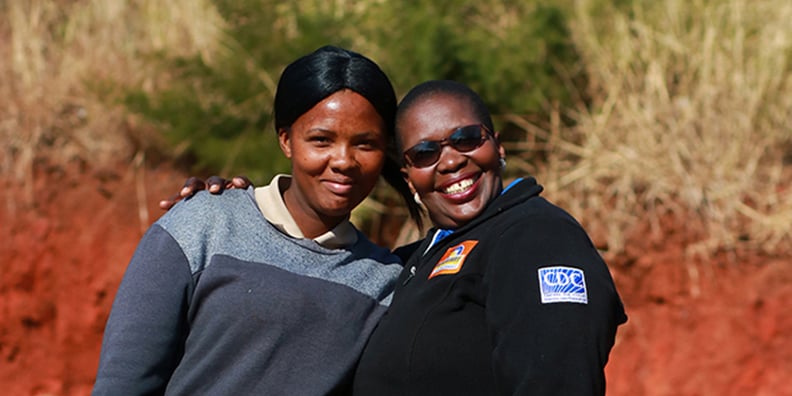Looking Forward: Advancing Health Equity

Thembi, right, is an HIV advocate who provides peer support in a rural area of Eswatini through CDC’s CommLink Peer Linkage Program. Credit: Brittany K. Moore
Moving forward, CDC is building on the lessons learned from COVID-19 to improve how we deliver our science and programs, policy, and the words we choose to communicate. With a keen focus on advancing health equity, CDC is working to share scientific findings and data faster, translating science into practical, easy to understand policy; prioritizing public health communications; promoting results-based partnerships; and developing a workforce better prepared for future emergencies. CDC’s Global Health Equity Strategy highlights and expands upon CDC’s global health goals.
CDC works to direct and sustain our focus on health equity scientific research, programs, interventions, policies, and communication by:
- Prioritizing needs of people who are most disadvantaged or disproportionately affected
- Engaging affected populations and communities
- Collaborating with external partners, including non-traditional and local partners
- Confirming that programs uphold principles of human rights
- Implementing good and ethical public health practice
- Cultivating ethical and knowledgeable staff
Through CDC’s commitment to these six guiding principles, CDC recognizes health as interdependent and interrelated with human rights. CDC efforts work to ensure that everyone can attain the highest attainable level of health, and no one is disadvantaged from achieving this potential because of social position or any other social, economic, demographic, or geographic circumstance or physical condition.